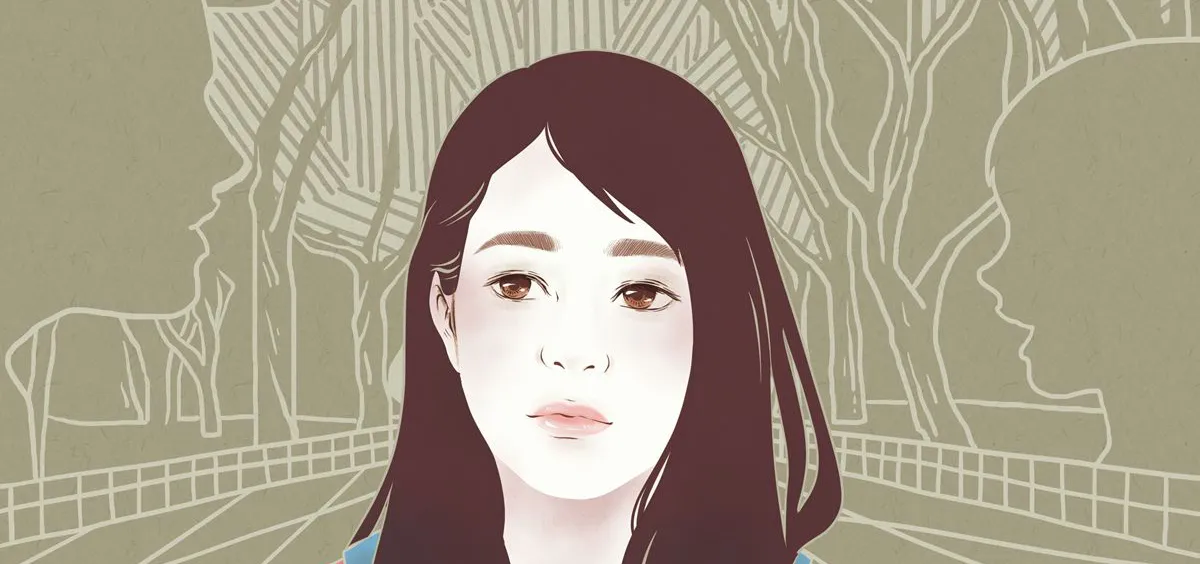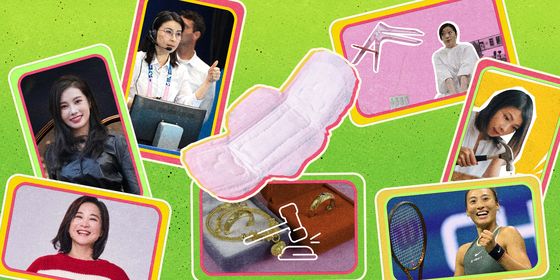From cradle to crèche, women are constantly being told what to do
Although China has advocated gender equality for decades, the patriarchy is still alive and well. Being a woman in today’s society is tough—during each stage of a woman’s life, she will be instructed on what decisions to make, to be a perfectly well-behaved “好好小姐” (Ms. Hao Hao). She is also more likely to be judged by her gender instead of her personality or achievements.
For many, sexism begins at conception, when parents try to divine the gender of the fetus in creative ways (doctors are not allowed to reveal this information, to prevent gender-selective abortions.) After the birth, people may be quick to offer opinions to her parents—even if nobody explicitly says, “I am sorry you had a girl,” their attitudes are unmistakable:
A daughter will bring you less trouble than a son. At least you don’t need to save money to buy her a marital home in the future.
Shēng nǚ’ér bǐ shēng érzi shěngxīn, zhìshǎo nǐ búyòng zǎnqián gěi tā mǎi hūnfáng le.
生女儿比生儿子省心,至少你不用攒钱给她买婚房了。
As “Little Hao Hao” becomes a toddler, she begins to explore the world, sometimes making a mess in the process. Her elders admonish her for not behaving like “女孩子家” nǚháizijiā, girl), and conforming to certain standards:
Why are you so mischievous for a girl?
Yí gè nǚháizijiā, zěnme zhème táoqì?
一个女孩子家,怎么这么淘气?
You’re a girl, so act like a girl!
Nǚháizijiā yào yǒu nǚhái de yàngzi!
女孩子家要有女孩的样子!
When Hao Hao is old enough to go to school, she is a good student: hardworking, disciplined, and good at exams. Her teachers seem pleased, until one day, she overhears:
Female students outperform male students now because they are better at rote learning. When the courses become more difficult, they may fall behind.
Nǚshēng xiànzài bǐ nánshēng xuéxí hǎo shì yīnwèi tāmen gèng shàncháng sǐjì yìngbèi, děng kèchéng nándù jiādà le, tāmen kěnéng jiù gēnbushàng le.
女生现在比男生学习好是因为她们更擅长死记硬背,等课程难度加大了,她们可能就跟不上了。
The girl is upset to hear that her achievements are just a gender-based fluke, but instead of speaking up, she knuckles down and works harder, preparing for her university entrance exams, or gaokao. A good score allows Hao Hao to attend a top university—but which major to choose? As usual, everyone is ready with their two cents:
Girls aren’t suited for science. You’re better off choosing from the liberal arts.
Nǚshēng bú shìhé xué lǐkē. Nǐ zuìhǎo háishi xuǎn gè wénkē zhuānyè.
女生不适合学理科。你最好还是选个文科专业。
They also have opinions on which university she should attend:
Why does a girl need to go so far from home? Just select a local school.
Nǚháizi líjiā nàme yuǎn gànma? Xuǎn yì suǒ běnshěng de xuéxiào jiù xíng le.
女孩子离家那么远干吗?选一所本省的学校就行了。
Assuming Hao Hao accepts their advice, goes to a nearby university, and majors in a “soft” subject: She makes the most of it and has a great university experience. However, after she graduates, she must again make a tough decision: Aim for higher education or join the job market? But for the adults around her, that isn’t even a question:
Why does a girl need so much education?
Nǚháizi dú nàme duō shū yǒu shéme yòng?
女孩子读那么多书有什么用?
Don’t tell me you want to be a female PhD. You’ll never be able to get married.
Bié gàosu wǒ nǐ jiānglái xiǎng dú chéng nǚbóshì. Nà nǐ gāi jià bu chūqu le.
别告诉我你将来想读成女博士,那你该嫁不出去了。
So, rather than risk her marriage eligibility by getting “over-educated,” Hao Hao looks for a job instead. There are plenty of options: some are challenging and stressful, but well-paid; others are stable and easy, but with little room for career advancement. She’s urged to choose the latter:
Girls don’t need to push themselves too hard. A stable job is good enough.
Nǚháizi méi bìyào tài pīn, gōngzuò wěndìng jiù hǎo.
女孩子没必要太拼,工作稳定就好。
Still, she finds a job she likes and excels in it. She isn’t immune, though, from judgment in the workplace. If she accomplishes anything, sex is the reason:
She was promoted in such a short time. I’m sure she used the casting couch.
Tā zhème kuài jiù shēngzhí le, wǒ gǎn kěndìng tā shì bèi “qiánguīzé” le.
她这么快就升职了,我敢肯定她是被“潜规则”了。
If she makes a mistake, gender is the cause:
This task shouldn’t have been assigned to her. Women are “long of hair, short of brains.”
Zhège gōngzuò jiù bùgāi jiāogěi tā. Nǚrén dàodǐ shì “tóufa cháng, jiànshi duǎn”.
这个工作就不该交给她。女人到底是“头发长,见识短”。
If she gets into a disagreement with a colleague, it’s because she’s a woman:
Wherever there are women, there is drama.
Nǚrén duō de dìfang shìr jiù duō.
女人多的地方事儿就多。
Meanwhile, Hao Hao’s family and friends are pressuring her to get married:
“A man at 30 is a flower; a woman at 30 is tofu dregs.” If you don’t get married soon, you’ll end up a spinster.
“Nánrén sān shí yì zhī huā, nǚrén sān shí dòufuzhā.” Nǐ zài bù jiéhūn jiù chéng lǎogūniang le.
“男人三十一枝花,女人三十豆腐渣。”你再不结婚就成老姑娘了。
So she duly gets married before turning 30, and soon, her husband suggests that she spends more time at home:
Since ancient times, it has been “men outside, women inside.”
Zìgǔ yǐlái jiùshì “nán zhǔ wài, nǚ zhǔ nèi” ma.
自古以来就是“男主外,女主内”嘛。
For women, family should come first.
Nǚrén háishi yào yǐ jiātíng wéi zhòng.
女人还是要以家庭为重。
Simultaneously, the media tells her:
A woman is supposed to be a virtuous wife and a good mother.
Nǚrén yīnggāi zuò ge xiánqī liángmǔ.
女人应该做个贤妻良母。
But even if Hao Hao gives in and becomes a full-time housewife, it’s difficult to live up to society’s expectations:
A good woman should be graceful in the drawing room and skillful in the kitchen.
Hǎonǚrén yīnggāi “shàng de tīngtáng, xià de chúfáng”.
好女人应该“上得厅堂,下得厨房”。
And the nagging doesn’t stop there. Soon everyone is expecting the patter of tiny feet:
You have been married for so long. It’s time to have a baby, or you will get too old.
Nǐ dōu jiéhūn zhème jiǔ le, gāi yào háizi le. Zài bù shēng nǐ jiù lǎo le.
你都结婚这么久了,该要孩子了。再不生你就老了。
A woman is incomplete if she doesn’t become a mother.
Méi dāngguo māma de nǚrén shì bù wánzhěng de.
没当过妈妈的女人是不完整的。
This once high-achieving student and successful employee is now pregnant—congratulations! Unfortunately, it’s a girl. At the hospital, people offer glib words of comfort: “A daughter is not so bad…” Only now does Hao Hao think of the comebacks she should have used years ago:
A daughter is as good as a son.
Shēng ér shēng nǚ dōu yíyàng.
生儿生女都一样。
Girls can also be playful and mischievous.
Nǚhái yě huì tānwánr, yě huì wánpí.
女孩也会贪玩儿,也会顽皮。
Girls, like boys, can be creative and logical.
Nǚshēng hé nánshēng yíyàng yǒu chuàngzàolì hé luóji sīwéi.
女生和男生一样有创造力和逻辑思维。
Girls can go anywhere in the world.
Nǚshēng yě néng zǒunán chuǎngběi.
女生也能走南闯北。
Girls also have the right to seek higher education.
Nǚshēng yěyǒu quánlì jiēshòu gāoděng jiàoyù.
女生也有权利接受高等教育。
Women should care about their careers too, and seek out challenges.
Nǚrén yě yǒu shìyèxīn, yě néng shēngrèn yǒu tiǎozhànxìng de gōngzuò.
女人也有事业心, 也能胜任有挑战性的工作。
Women have the right to decide when, or whether, to get married.
Nǚrén yǒuquán juédìng zìjǐ shénme shíhou jiéhūn, huòzhě jié bu jiéhūn.
女人有权决定自己什么时候结婚,或者结不结婚。
Women can also be breadwinners.
Nǚrén yě kěyǐ zhuànqián yǎngjiā.
女人也可以赚钱养家。
A woman is more than just a wife and mother.
Nǚrén bù zhǐshì qīzi hé mǔqīn.
女人不只是妻子和母亲。
Women and men are equal.
Nǚrén hé nánrén shì píngděng de.
女人和男人是平等的。
Mansplaining with Chinese Characteristics is a story from our issue, “The Masculinity Issue.” To read the entire issue, become a subscriber and receive the full magazine.












